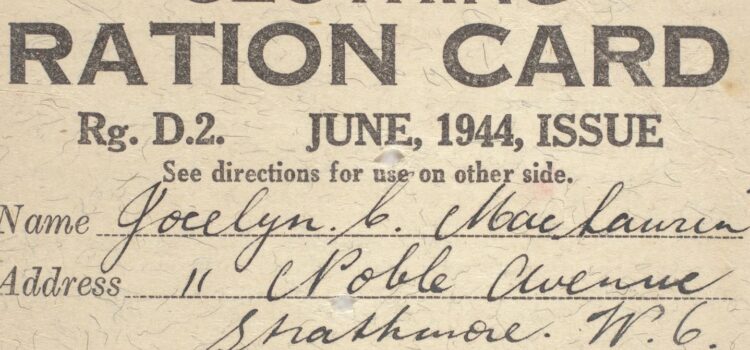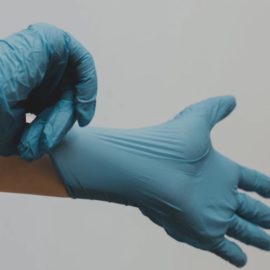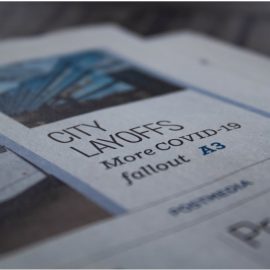

This article is an excerpt from the Shortform summary of "The Hiding Place" by Corrie ten Boom. Shortform has the world's best summaries of books you should be reading.
Like this article? Sign up for a free trial here .
What was the purpose of ration cards in WW2? Why did Corrie ten Boom need them?
WW2 ration cards were used to limit the consumption of materials. Jews in hiding did not have WW2 ration cards and getting food supplies was difficult for them.
By staging a fake robbery of WW2 ration cards, Corrie ten Boom was able to provide sufficient supplies for the Jews hiding in her home. Learn more about ration cards in WW2.
Ration Cards: WW2 Necessity Created a Challenge
The most critical challenge Corrie faced was ration cards—she needed to find a way to secure them for the Jews under her care. The safehouses in the countryside to which they would be sent demanded that incoming Jews have valid ones. Unlike other documents, ration cards in WW2 couldn’t be easily forged or counterfeited, as they were changed too frequently and would be too easy for the authorities to spot.
She needed to obtain real cards—it was Willem who suggested that she steal them. This was another dilemma, one that put Corrie’s Christian values to the test. She knew she would have to defy the law to obtain the ration cards in WW2. But she also knew that she was answering to a much higher law.
Ration Card “Robbery”
In the book, there is a “robbery” of ration cards in WW2. There was a Corrie knew Fred Koonstra, the man who ran the Food Office, which was the department in charge of issuing ration cards. Before this, he had worked for the local electric company, reading the meter at the Beje. He also had a mentally challenged daughter, which gave him a more meaningful connection to the ten Boom family. For years, Corrie had been administering religious services and instructions to the mentally challenged community of Haarlem, including Fred’s daughter.
She visited Fred and told him plainly about the situation she was in and how he was in a position to help her. She was running a major risk, as she did not know Fred’s politics and had no way of knowing whether or not he would be sympathetic to the cause of rescuing Jews. Corrie prayed silently to herself that she had not made a mistake in approaching him. To her relief, Fred agreed to cooperate.
He told Corrie that the best way to get the ration cards in WW2 would be to stage a fake robbery of the Food Office, at a time when only he and the record clerk were there. Corrie agreed to this plan, despite her qualms about the dishonesty it involved. Fred had one more question for Corrie: “How many cards do you need?” Corrie only had five Jews at the Beje, so she really needed no more than this. But, when she answered Fred’s question, she found herself saying, “100.” She was going to go to the maximum extent to rescue as many people as she could. She told Fred not to tell her who he would recruit to perform the “robbery,” or any other details of the operation. The less she knew the better.
The conspiracy worked. A week later, Fred turned up at the Beje with 100 cards, as well as bruises on his face—the “robber” had evidently committed to realism. He and Corrie worked out an arrangement in which he would deliver new cards to the Beje each month, disguised in his old meterman uniform. The new cards would be stored under a secret hollow space under the stairs at the house.
The system worked well enough, as Fred would innocuously stroll into the Beje in his meterman uniform, pretend to read the meter, deposit the new issue of food ration cards, and leave. Only one time did Corrie fear that something would go wrong. On July 1, 1942, a policeman named Rolf strolled into the Beje at the same time as Fred, ostensibly to drop off a watch that needed cleaning. But to Corrie’s relief, Fred maintained his composure and the officer left with no incident. This exchange was one of Corrie’s first tastes of just how nerve-wracking her life was about to get.

———End of Preview———
Like what you just read? Read the rest of the world's best summary of Corrie ten Boom's "The Hiding Place" at Shortform .
Here's what you'll find in our full The Hiding Place summary :
- Why devout Christian Corrie ten Boom decided to stand up to the Nazi occupation
- How ten Boom and the Jewish neighbors she was hiding were caught
- How ten Boom survived the concentration camp and left with even stronger faith






